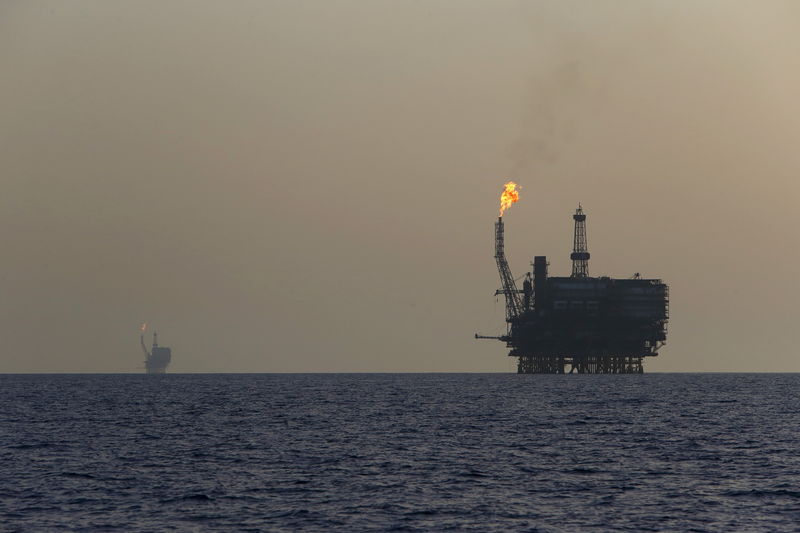By Henning Gloystein
SINGAPORE (Reuters) - Oil prices stabilised on Thursday, supported by lower U.S. stockpiles and a firm demand outlook, but worries over China's economy continued to weigh.
A 1.7-million barrel drop in U.S. stockpiles last week helped to at least temporarily halt a price slide that has seen WTI and Brent lose over a quarter of their value since May.
A relatively bullish outlook by the International Energy Agency (IEA) on Wednesday also supported prices.
U.S. crude
"Although we are seeing support, we remain skeptical over how long this support could last. Bearish momentum is still extremely strong," Singapore-based brokerage Phillip Futures said on Thursday.
The IEA said global oil demand growth in 2015 would be the strongest in five years, although it added that global oversupply would last through 2016.
ALL IS NOT WELL IN CHINA
But analysts said there were doubts around a strong demand forecast as China's economy grows at its slowest pace in decades forcing Beijing to devalue its currency, potentially denting demand for imports of fuel.
China's implied oil demand fell in July from the previous month amid a continuing drop in its vehicle sales that could mute growth further in the second half of 2015.
China consumed roughly 10.12 million barrels per day (bpd) of oil in July, down over 4 percent from June, although the implied use was up from 9.72 million bpd a year ago.
The month-on-month fall came as Chinese auto sales dropped 7.1 percent in July from a year earlier, the fourth straight monthly decline and biggest since February 2013.
"All is not well with the Chinese economy," Howie Lee of Phillip Futures told the Reuters Global Oil Forum.
"There is so much pessimism attached to this move (yuan devaluation). For China to start a fresh currency war... smacks of desperation," he added.
China's yuan weakened again on Thursday as the central bank tried to slow a selloff that saw the currency lose around 4 percent in just two days.

Dylan Mair, head of IHS Energy Technical Operations, Asia-Pacific, said on Thursday in Singapore that the consultancy expected Brent to average $54.61 per barrel in 2015, and $60.48 next year, while it expected WTI to be $49.31 and $54.50 per barrel for this year and in 2016, respectively.